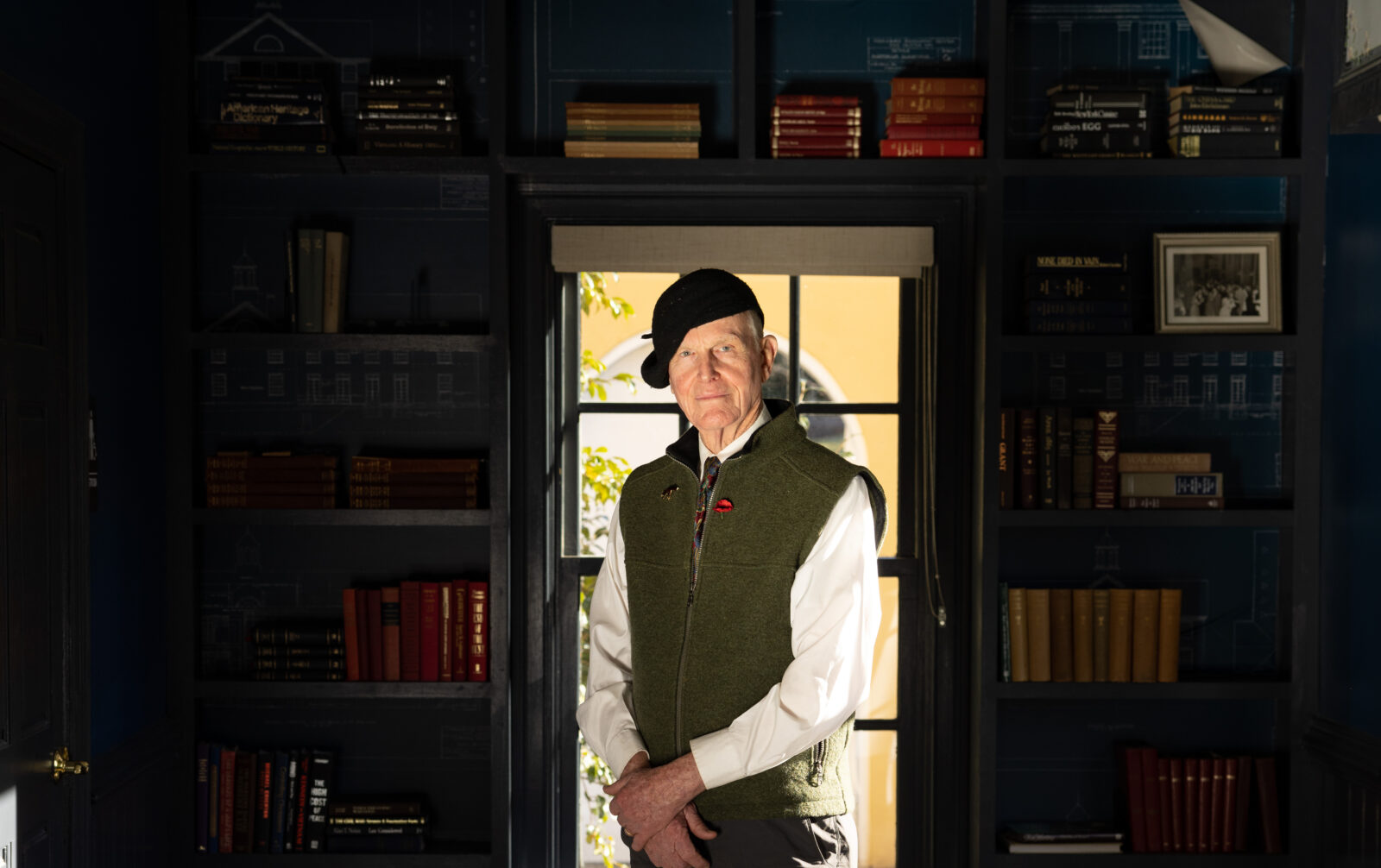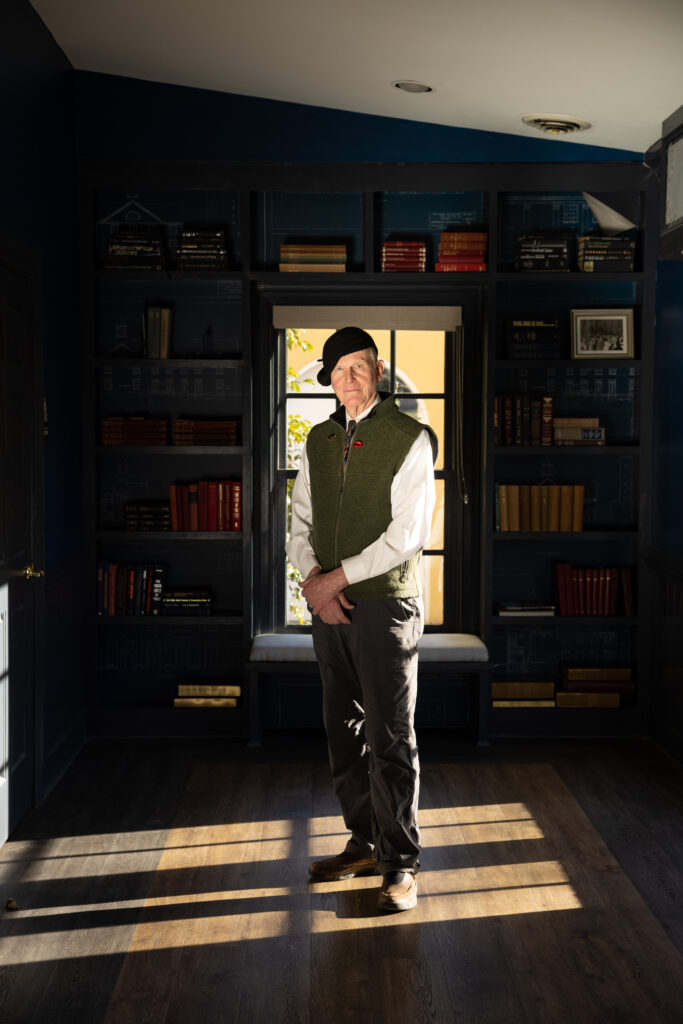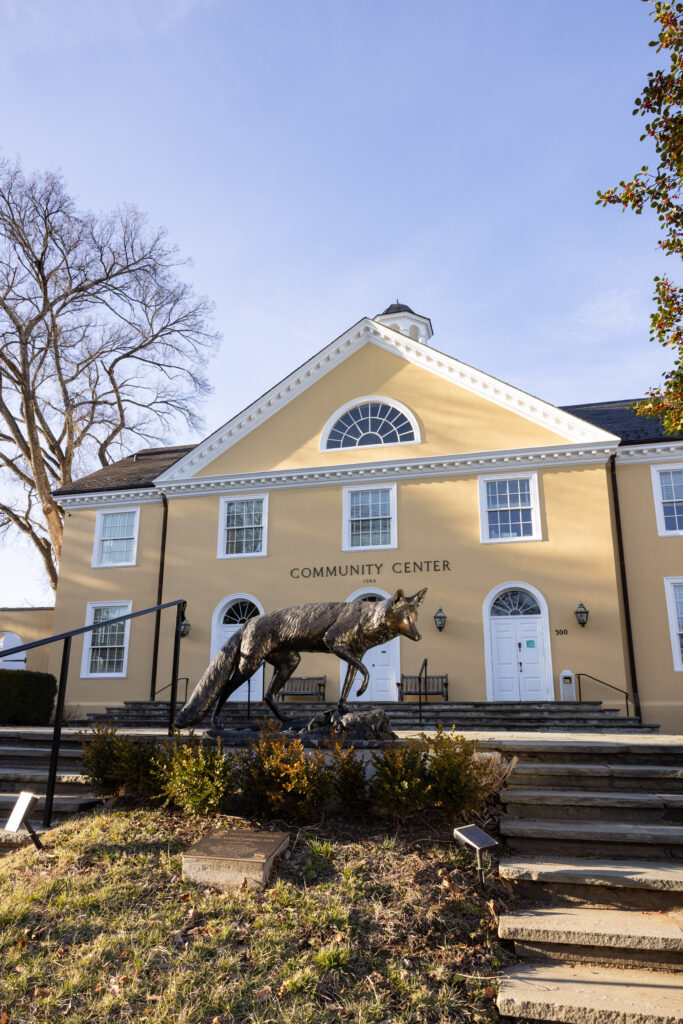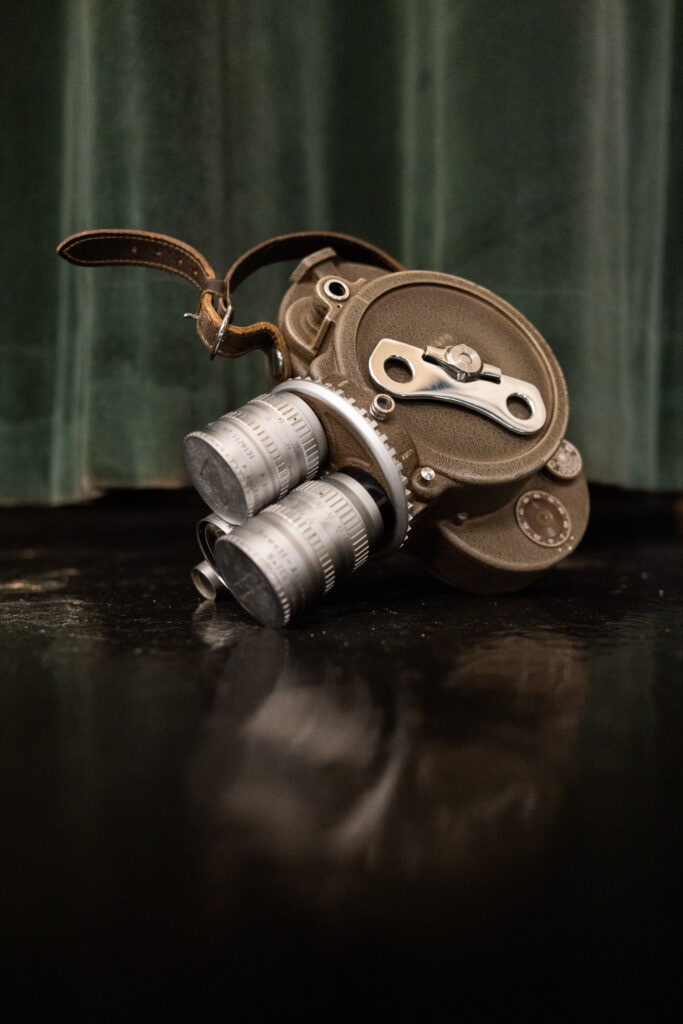Thoughts On Film with Tom Davenport

Written by Will Thompson / Photos by Callie Broaddus
The streets of Middleburg hovered between 20 degrees and just below freezing on a wind-chilled February evening. Even as the sun began to set on Washington Street, a warm light glowed welcomingly from the Middleburg Community Center. Inside, a crowd had gathered from across Hunt Country and beyond to share in experiencing films by local filmmaker Tom Davenport. The screening celebrated the golden anniversary of the production of Davenport’s film, “Thoughts on Fox Hunting,” while raising funds for Friends of Emmanuel Episcopal Church in nearby Delaplane.
Since the early 1970s, Davenport, who was raised in Fauquier County, has been making films in which the folk cultures of the Piedmont play the leading role. Davenport’s films include documentaries portraying families, communities, and local cultural institutions such as fox hunting, rabbit hunting with beagles, and country music. He has also made scripted films based on folktales set in Hunt Country. Some of his best known are his adaptations of Grimm’s fairy tales set among the Piedmont landscape and culture.

The octogenarian filmmaker first came to live in Northern Virginia in the 1950s when his father purchased a run-down farm on the eastern slope of the Blue Ridge Mountains which he renamed Hollin. After growing up working and living on Hollin Farms, Davenport traveled out of Hunt Country, receiving a degree from Yale University in 1961, teaching English and studying Chinese in Hong Kong and Taiwan, and working as an apprentice to documentary filmmakers Richard Leacock and Don Pennebaker in New York City. Davenport returned to Hollin Farms in 1970 and founded the independent film company, Davenport Films, in partnership with his wife, co-producer, and designer, Mimi Davenport. These days Davenport is not making new films but directs videos for Folkstreams.net, a non-profit focused on preserving American folklife through documentary film. He also helps out on the farm, managing the Hollin Farms natural beef sales.
After five decades of documenting and telling stories of life in Hunt Country, Davenport’s films have themselves become part of the community’s culture. It’s not uncommon for viewers to recognize their families, neighbors, or favorite landmarks in his films. And his works, particularly his adaptations of Grimm’s fairy tales, have become educational bulwarks in area libraries, classrooms, and on public broadcasting stations.
Following the screening of his films at the Community Center, Davenport talked conversationally and joked with the audience which included current members of the fox hunting community and family members of Melvin Poe, the subject of “Thoughts on Fox Hunting.” “This is a bit like attending my own funeral,” he said with a smile while looking out over a crowd of his friends, neighbors, and colleagues of past and present. Davenport’s anecdotes bubbled over with such enthusiastic detail that his audience was transported to late 20th-century fox hunts, scrambling alongside the filmmakers as they chased a pack of baying hounds and galloping horses while carrying heavy 16 mm film cameras. Davenport also passed around one of the actual cameras used to capture the film: a World War II-era Bell & Howell windup camera weighing nearly 20 pounds that the filmmakers ran with or carried on horseback.


“You don’t have to go to some fancy tourist place to find something wonderful; you can find it in your backyard,” Davenport shared. “You can find something wonderful in your family or your local community that is worth documenting and you do it in a way that gives it honor, and beauty, and meaning.”
Recognizing the need for American folklife stories to reach wider audiences, Davenport founded Folkstreams.net in 2002 in partnership with Dr. Daniel Patterson of the University of North Chapel Hill. The American Folklore Society described their work as a visionary project, started at a time when streaming films on the web was in its infancy. It has gone on to become an extraordinary democratic initiative in public folklore and education, exponentially increasing the visibility of the field and giving grassroots communities across the U.S. access to their own traditions, folklore, and cultural history.
“Telling stories is a profoundly human act,” said Davenport. “It’s an attempt to transcend our human limitations of distance, time, and even death. We may pass on, but the best of us, our lessons, values, and heroes, lives on in our stories and reaches generations far beyond our own.”
Davenport’s films, as well as those by other filmmakers, are available to stream free of charge at folkstreams.net. ML
Published in the March 2023 issue of Middleburg Life.








